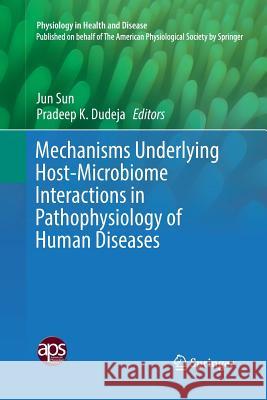Mechanisms Underlying Host-Microbiome Interactions in Pathophysiology of Human Diseases » książka
topmenu
Mechanisms Underlying Host-Microbiome Interactions in Pathophysiology of Human Diseases
ISBN-13: 9781493985135 / Angielski / Miękka / 2019 / 381 str.
Kategorie BISAC:
Wydawca:
Springer
Seria wydawnicza:
Język:
Angielski
ISBN-13:
9781493985135
Rok wydania:
2019
Wydanie:
Softcover Repri
Ilość stron:
381
Waga:
0.55 kg
Wymiary:
23.39 x 15.6 x 2.08
Oprawa:
Miękka
Wolumenów:
01
Dodatkowe informacje:
Wydanie ilustrowane











